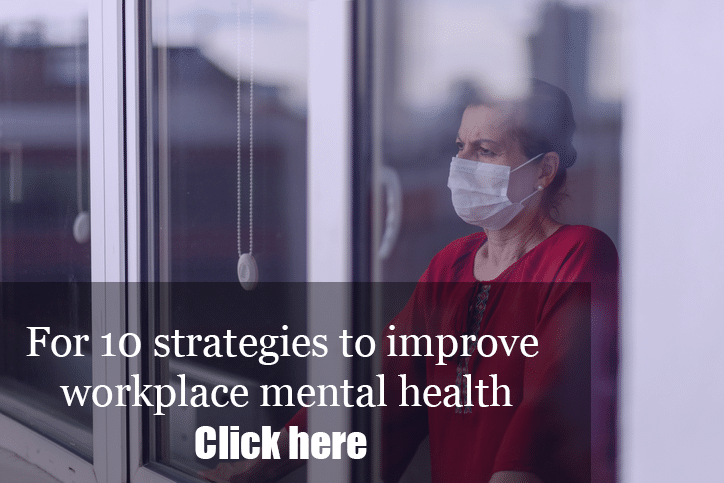80%: Percentage of employees who say they would quit a job over mental health
About eight in 10 employees say they would consider quitting their current position for a job that focused more on employee mental health, according to a survey of 1,000 workers by TELUS International, a telecommunications company.
What it means for HR leaders
COVID-19 is having a huge impact on employees’ mental health: 75% of U.S. employees have struggled at work due to anxiety caused by the COVID-19 pandemic and other recent world events, according to the survey. That’s already bad news for employers and HR leaders, but it’s compounded by the findings that employees would leave their jobs over mental health.
Without prioritizing mental health, employers are facing an exodus of U.S. workers.
Related: Mayer: The employees are not all right
 Employers need to help workers and significantly step up mental health efforts, experts say. “It’s imperative in today’s climate that employers are aware of and consider the difficult truth that many individuals are experiencing mental and physical health issues since they began working from home during the COVID-19 pandemic,” says Marilyn Tyfting, chief corporate officer of TELUS International.
Employers need to help workers and significantly step up mental health efforts, experts say. “It’s imperative in today’s climate that employers are aware of and consider the difficult truth that many individuals are experiencing mental and physical health issues since they began working from home during the COVID-19 pandemic,” says Marilyn Tyfting, chief corporate officer of TELUS International.
Approaches employers can take include offering employees flexibility in their work schedule (nearly nine in 10 respondents agreed that would positively impact their mental health), offering health benefits/coverage that include therapy/counseling (49%), having thoughtful one-on-one check-ins (43%) and hosting virtual workshops focused on health and wellness, such as yoga and meditation classes (37%).
Related: 10 strategies to improve employees’ mental health
Encouraging employees to take time off is also important. The survey also shows that over half of respondents said they have not taken a mental health day since they started working from home due to the pandemic, and 44% have not taken a single day of vacation since they started working from home despite 97% saying that vacation days while working from home are important to “recharge.”